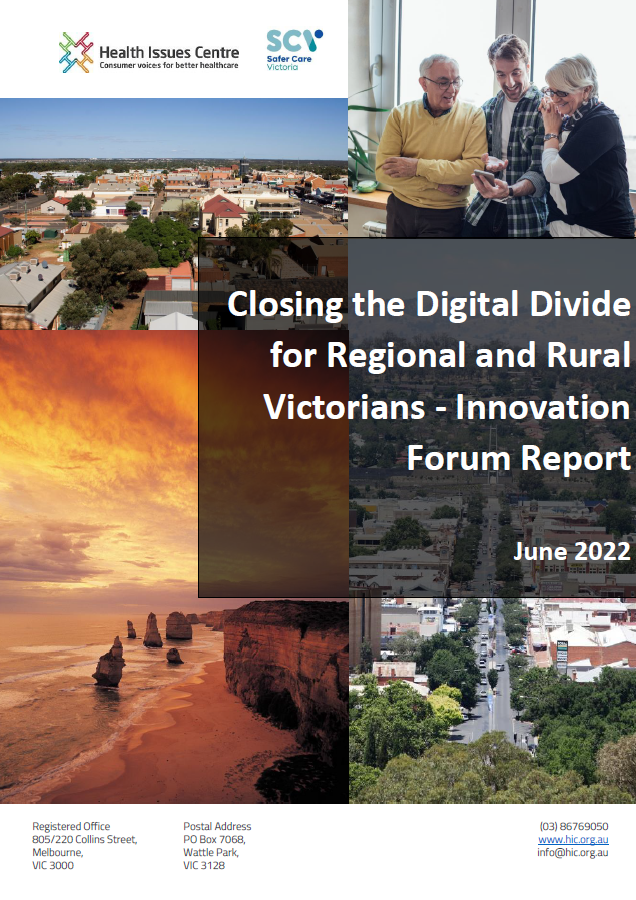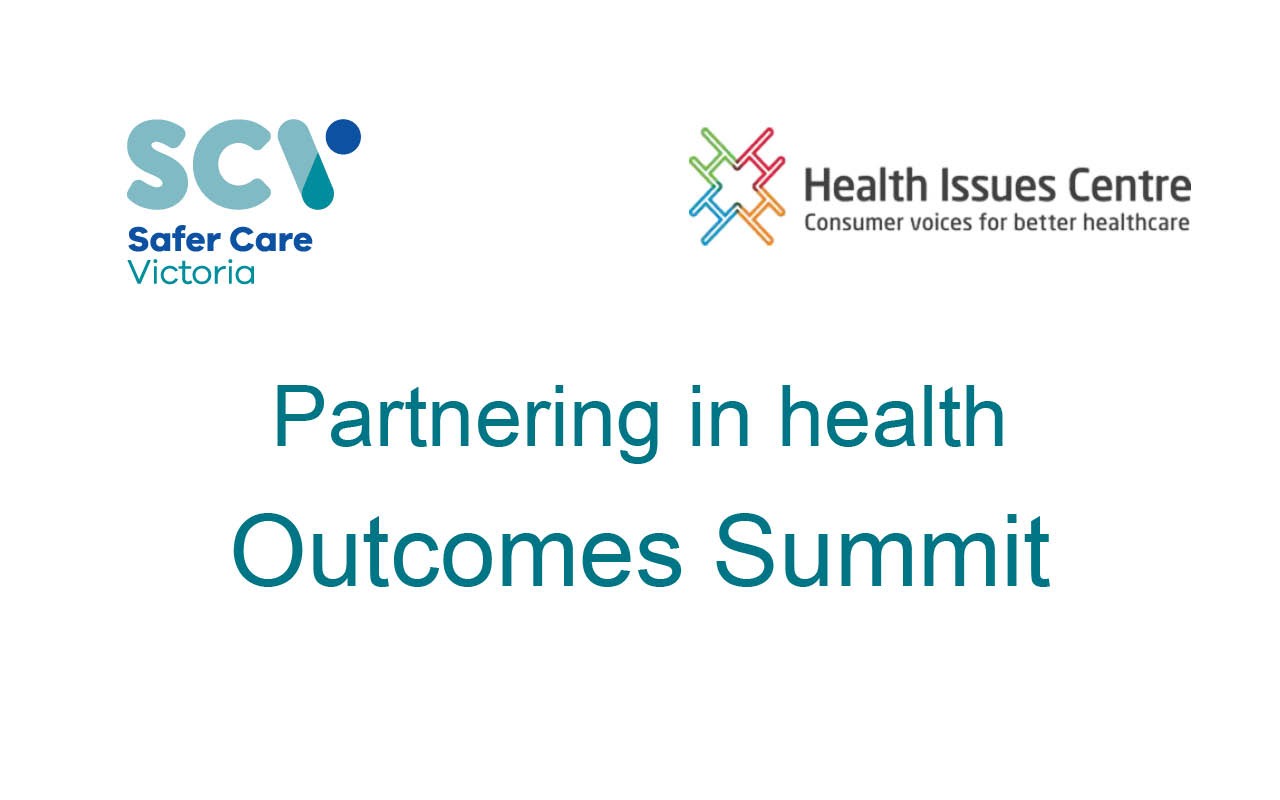Improving the health inequalities faced by rural and regional Victorian communities requires close attention from decision makers. The rapid digitisation of healthcare creates opportunities to reduce barriers to accessing care and to improve health outcomes, however, there is a risk of heightening health inequalities.
Addressing the challenges of digital health exclusion faced by regional communities was discussed by a vibrant group of stakeholders at a session held by HIC in May. We are pleased to share with you the report from this event along with recordings of the presentations.
Addressing the challenges of digital exclusion faced by regional communities
On May 31, 2022, Health Issues Centre ran an online event, Closing the Digital Divide for Regional and Rural Victorians – Innovation Forum, thanks to funding from Safer Care Victoria. The interactive forum was attended by consumers, health and community services workers, state government representatives and technology industry representatives.
Insights from a consumer
The event was opened by a presentation from Sharon (Shazi) Sheppard, a Consumer Advocate from South Gippsland. Shazi shared examples of how she has personally been impacted by issues such as poor connectivity, data affordability and poor quality interactions with health professionals via telehealth. She also shared powerful insights about how the digital divide is negatively impacting on her broader community. Take a look at Shazi’s presentation
Ways organisations are working to close the digital divide
We heard from three digital inclusion experts who shared how they had been working to reduce the digital divide. They were:
- Darin Roy (East Gippsland Telehealth Project Lead, Bairnsdale Regional Health Service) presented on the work he has done to enhance access to telehealth services for residents in the region.
- Joanne Everett (Grampians Region Telehealth Consultant, Ballarat Health Service) presented on the steps she has taken to better equip health services to enable consumers to access telehealth.
- Craig Panagiris (Founder, Maturity Matters) presented several case studies to illustrate the value of their Technology Mentoring Program in enhancing digital literacy for older people in the Gippsland area.
The full presentations can be viewed below.
Highlighting the issues faced in regional communities
The event elicited insights on the issues faced by regional and rural health consumers due to digital exclusion including:
- Connectivity Issues
- Attitudes towards digitisation and health
- Affordability and data limits
- Digital literacy
- Need for alternatives to digital solutions
- The cost to consumers in a complex health system
- Issues with telehealth
Co-created recommendations for a way forward
Recommendations from the event include the following high-level approaches to enhance digital inclusion for those most affected:
- Support for consumers to enhance digital literacy and transition to telehealth
- Direction to health services in the provision of digital alternatives and choice
- Prioritising rural consumer and community engagement processes
- Equitable provision of data to those living rurally to access health services
- Care coordination for those rural health consumers with complex needs
The full report can be downloaded here.
If you have any questions about the event or report, please reach out to Katherine Burnard, Training, Development & Projects Officer at katherine.burnard@hic.org.au







